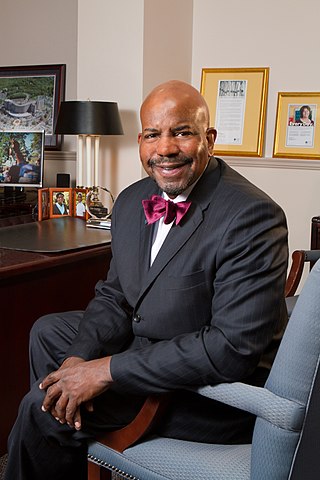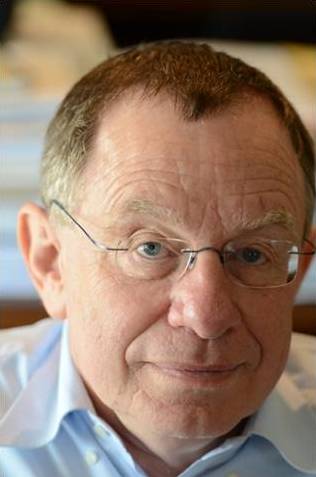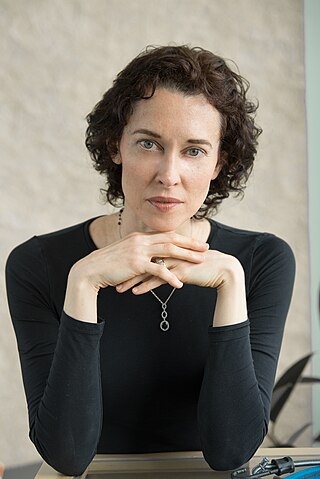Related Research Articles

Tel Aviv University is a public research university in Tel Aviv, Israel. With over 30,000 students, it is the largest university in the country. Located in northwest Tel Aviv, the university is the center of teaching and research of the city, comprising 9 faculties, 17 teaching hospitals, 18 performing arts centers, 27 schools, 106 departments, 340 research centers, and 400 laboratories. It is ranked 7th in the world by PitchBook data index.

The Technion – Israel Institute of Technology is a public research university located in Haifa, Israel. Established in 1912 by Jews under the dominion of the Ottoman Empire, the Technion is the oldest university in the country.

Henry Samueli is an American businessman, engineer, and philanthropist. He is a co-founder of Broadcom Corporation, owner of the National Hockey League's Anaheim Ducks, and a prominent philanthropist in the Orange County, California community. He is chairman of Broadcom Inc. He is also a professor in the Electrical and Computer Engineering Department at UCLA, and a distinguished adjunct professor in the Electrical Engineering and Computer Science Department at UC Irvine.

The President's Council of Advisors on Science and Technology (PCAST) is a council, chartered in each administration with a broad mandate to advise the president of the United States on science and technology. The current PCAST was established by Executive Order 13226 on September 30, 2001, by George W. Bush, was re-chartered by Barack Obama's April 21, 2010, Executive Order 13539, by Donald Trump's October 22, 2019, Executive Order 13895, and by Joe Biden's February 1, 2021, Executive Order 14007.

Krzysztof "Kris" Matyjaszewski is a Polish-American chemist. He is the J.C. Warner Professor of the Natural Sciences at the Carnegie Mellon University Matyjaszewski is best known for the discovery of atom transfer radical polymerization (ATRP), a novel method of polymer synthesis that has revolutionized the way macromolecules are made.

Cato T. Laurencin FREng SLMH is an American engineer, physician, scientist, innovator and a University Professor of the University of Connecticut.

Joseph M. DeSimone is an American chemist, inventor, and entrepreneur who has co-founded companies based on his research, including the American 3D printing technology company, Carbon, of which he was CEO from 2014 until November 2019.

Rafael (Rafi) Beyar is an Israeli medical doctor, entrepreneur, and professor who is the eighth director of Rambam Health Care Campus since 1996. Beyar, an authority on interventional cardiology, also continues to practice in his specialty of clinical invasive cardiology. Beyar is the editor of several books related to cardiology and electrophysiology, including Frontiers in Interventional Cardiology, Proceedings from International Meetings, Analysis of Cardiac Development: from Embryo to Old Age; and co-founder of Corindus Vascular Robotics.
Babatunde Ayodeji Ogunnaike was an American chemical engineer of Nigerian descent and the William L. Friend Professor of Chemical and Biomolecular Engineering at the University of Delaware (UD). He was the former dean of UD's college of engineering. He died on February 20, 2022. He had waged a long battle with cancer.
John Michael Prausnitz is an emeritus professor of chemical engineering at the University of California, Berkeley.
Ioannis George (Yannís) Kevrekidis is currently the Bloomberg Distinguished Professor in Chemical and Biomolecular Engineering within the Whiting School of Engineering, Johns Hopkins University. He holds secondary appointments in the Whiting School's Department of Applied Mathematics & Statistics and the Johns Hopkins University School of Medicine's Department of Urology.
William Mark Saltzman was named the Goizueta Foundation Professor of Biomedical and Chemical Engineering at Yale University on July 1, 2002 and became the founding chair of Yale's Department of Biomedical Engineering in 2003. Saltzman's research aims to promote new methods for drug delivery and develop new biotechnologies to combat human disease. A pioneer in the fields of biomaterials, nanobiotechnology, and tissue engineering, Saltzman has contributed to the design and implementation of a number of clinical technologies that have become essential to medical practice today. His popular course Frontiers of Biomedical Engineering is available to everyone through Open Yale Courses.

Denis Wirtz is the vice provost for research and Theophilus Halley Smoot Professor of Engineering Science at Johns Hopkins University. He is an expert in the molecular and biophysical mechanisms of cell motility and adhesion and nuclear dynamics in health and disease.
Kathleen Stebe is a scientist with areas of expertise in nanostructured materials, as well as surface and colloidal science. She is also a professor of chemical and biomolecular engineering at The University of Pennsylvania.

Jennifer Hartt Elisseeff is an American biomedical engineer, ophthalmologist and academic. She is the Morton Goldberg Professor and Director of the Translational Tissue Engineering Center at Johns Hopkins Department of Biomedical Engineering and the Wilmer Eye Institute with appointments in Chemical Engineering, Biomedical Engineering, Materials Science and Orthopedic Surgery. Elisseeff's research is in the fields of regenerative medicine and immunoengineering.
Natalia Trayanova FAHA FHRS is a Professor of Biomedical Engineering in the Department of Medicine at Johns Hopkins University. She directs the Alliance for Cardiovascular Diagnostic and Treatment Innovation

Yonina C. Eldar is an Israeli professor of electrical engineering at the Weizmann Institute of Science, known for her pioneering work on sub-Nyquist sampling.
Hai-Quan Mao is a Chinese chemist and nanotechnologist. He is a professor at Johns Hopkins University and associate director of the university's Institute for NanoBioTechnology. He is a fellow of the Royal Society of Chemistry and the American Institute for Medical and Biological Engineering and a member of the National Academy of Inventors.

Zehev Tadmor is a retired Israeli chemical engineer who has served as distinguished professor, president, and chairman of the Technion-Israel Institute of Technology. He is also chairman of the Samuel Neaman Institute for Advanced Studies in Science and Technology, a policy research center. His main research interest is polymer and plastics engineering and processing. He won the Emet Prize in 2005.
Linda Jean Broadbelt is an American chemical engineer who is the Sarah Rebecca Roland Professor and associate dean for research of the McCormick School of Engineering and Applied Science at Northwestern University. Her research considers kinetics modeling, polymerization and catalysis.
References
- ↑ "Sharon Gerecht". Department of Chemical & Biomolecular Engineering. Retrieved 2019-10-22.
- ↑ "Four from Hopkins elected to National Academy of Medicine". The Hub. Johns Hopkins University. 2019-10-21. Retrieved 2019-10-22.